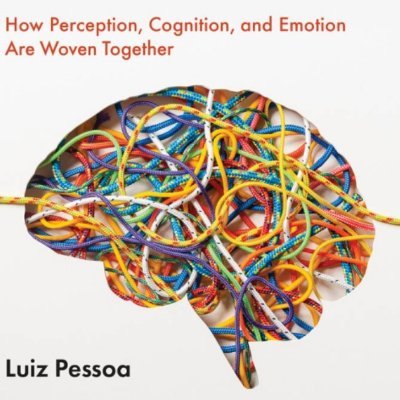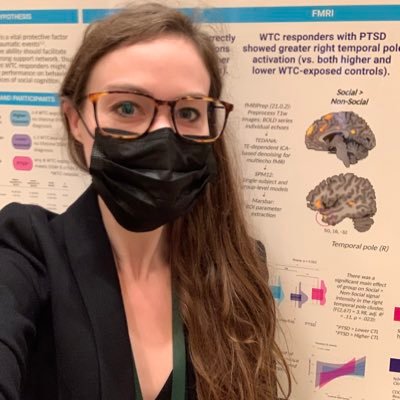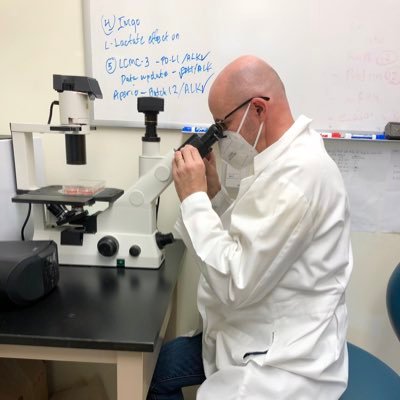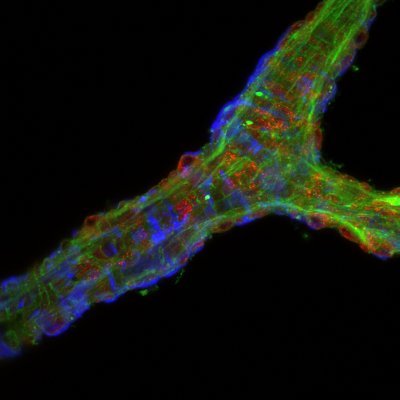
Corey Richier
@cjrichierClinical psych PhD student at @UofIllinois. Psychopathology, comorbidity, machine learning, and systems/computational neuroscience. Opinions my own
Similar User

@QMmmmmmLiu

@DrKathrynKemp

@DrSarahSperry

@MEDVanderbilt

@NadjaGingJehli

@AndrewK_PhD

@Carly_Lasagna

@DustinHaraden

@VonettaDotson

@dp_moriarity

@DrJohnOHara

@JulianneGrif

@erinkaseda

@sheila_rauch

@CarterFunkhous1
Thrilled to announce my first manuscript submission of graduate school was promptly rejected! 🥳
My demons said I couldn’t do it, To go from never running a marathon to full Ironman in <6mo, w/ a newborn & building/launching bolt․new, But today after a 2.4mi swim, 112mi bike, full 26.2mi marathon, all back to back in 12h15m, I am an Ironman.
PhD position available! Interested in thinking critically about determinants & definitions of mental health, long-term impacts of early-life experience, & fundamental mechanisms of decision-making? See aaron.bornstein.org/lab for details, and apply at apply.grad.uci.edu/apply/
What happens when we break down DSM diagnoses into their individual symptoms and rebuild our classification system from the ground up? Do we see familiar DSM constructs, HiTOP dimensions, or something else entirely? New paper out today! ✨ journals.sagepub.com/doi/10.1177/21… 1/🧵

How do your favorite disorders fare in a data-driven reorganization of the DSM-5? Find out in this new preprint where we followed the patterns in 14,762 individuals’ symptoms with the goal of overcoming limitations in both the DSM and @HiTOP_system x.com/PsyArXiv_bot_v…

Many of you know this, but some still don't get it. So here it is again: If your only acceptable outcome is statistical significance, you are doing rhetoric not science.
(1/2) Join NIMH's Emotion and Development Branch as a Postbac IRTA! 🎓 Drs. Daniel Pine and Melissa Brotman are seeking recent grads to conduct research on the neurocognitive and decision-making mechanisms of mental illness with a focus on behavioral and mood disorders.
So good the 1st time that I want to say again that @KwapilLab at @PsychIllinois is recruiting a doctoral student for fall 2025 - with an emphasis on conceptualization and assessment of multidimensional schizotypy. Application deadline is November 15th. psychology.illinois.edu/academics/phd-…
"Averaging over time hides what a neuron actually sees, what it actually gets to compute with." 💯 We need a handy review paper on artifacts of averaging. I come across wildly incorrect inferences from averaging & other data summaries way too often. thetransmitter.org/neural-coding/…
hands off! that’s the idea i planned to sit on for the next couple of decades
This narrative review evaluates the validity of 9 diagnostic approaches in characterizing psychiatric symptoms. ja.ma/4d3Iy6o


Don’t be deceived by pretty plots ❤️
The shared genetic effects of mental disorders.

There is one thing I keep hearing from NIH study sections, in paper reviews, or as questions at seminars: deep learning is not intrepretable and this makes DL problematic for medical imaging. This is flawed and here's something to read about this: ieeexplore.ieee.org/abstract/docum…
New paper, listing 43 ways ML evaluations can be misleading or actively deceptive. Following the good critics of psychological science we call these "questionable research practices" (QRPs). (The working title was "How To Lie In Machine Learning")
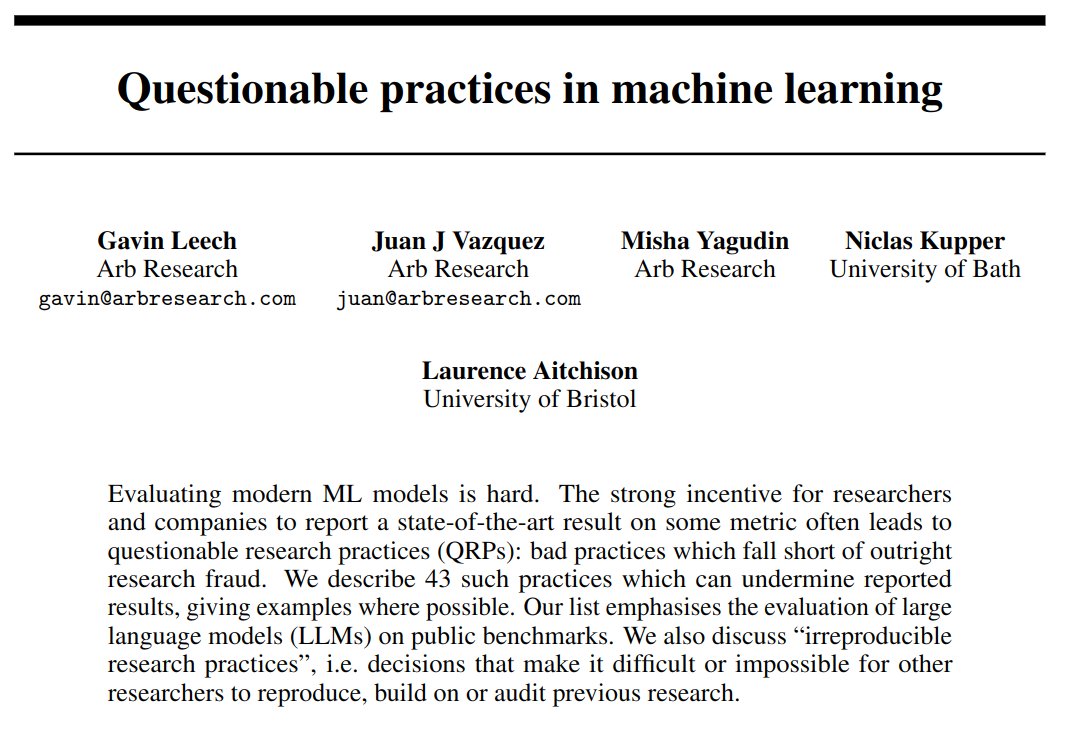

United States Trends
- 1. Joe Douglas 6.999 posts
- 2. Maxey 9.340 posts
- 3. Jaguar 34 B posts
- 4. Embiid 17,7 B posts
- 5. Rodgers 10,5 B posts
- 6. #OnlyKash 11,2 B posts
- 7. Woody 13,8 B posts
- 8. Russia 930 B posts
- 9. $CUTO 8.225 posts
- 10. Nancy Mace 45,9 B posts
- 11. Ukraine 996 B posts
- 12. #HMGxCODsweeps N/A
- 13. Merchan 22,5 B posts
- 14. WWIII 164 B posts
- 15. Sony 70,1 B posts
- 16. The Jets 26,4 B posts
- 17. Hacker 24 B posts
- 18. #InternationalMensDay 82,9 B posts
- 19. Sarah McBride 44,2 B posts
- 20. SPLC 17,5 B posts
Who to follow
-
 Q. Liu | 刘启民, Ph. D.
Q. Liu | 刘启民, Ph. D.
@QMmmmmmLiu -
 Katie Kemp, Ph.D.
Katie Kemp, Ph.D.
@DrKathrynKemp -
 Sarah H. Sperry, PhD
Sarah H. Sperry, PhD
@DrSarahSperry -
 Mood, Emotion, & Development Lab at Vanderbilt
Mood, Emotion, & Development Lab at Vanderbilt
@MEDVanderbilt -
 Nadja R. Ging Jehli
Nadja R. Ging Jehli
@NadjaGingJehli -
 Andrew Kiselica, PhD, ABPP
Andrew Kiselica, PhD, ABPP
@AndrewK_PhD -
 Carly A. Lasagna
Carly A. Lasagna
@Carly_Lasagna -
 Dustin Haraden @dustinharaden.com
Dustin Haraden @dustinharaden.com
@DustinHaraden -
 Vonetta Dotson
Vonetta Dotson
@VonettaDotson -
 Daniel P. Moriarity
Daniel P. Moriarity
@dp_moriarity -
 John O’Hara
John O’Hara
@DrJohnOHara -
 Julianne Griffith, PhD
Julianne Griffith, PhD
@JulianneGrif -
 Erin Kaseda 加世田エリン
Erin Kaseda 加世田エリン
@erinkaseda -
 Sheila A. M. Rauch, Ph.D.
Sheila A. M. Rauch, Ph.D.
@sheila_rauch -
 Carter Funkhouser
Carter Funkhouser
@CarterFunkhous1
Something went wrong.
Something went wrong.











